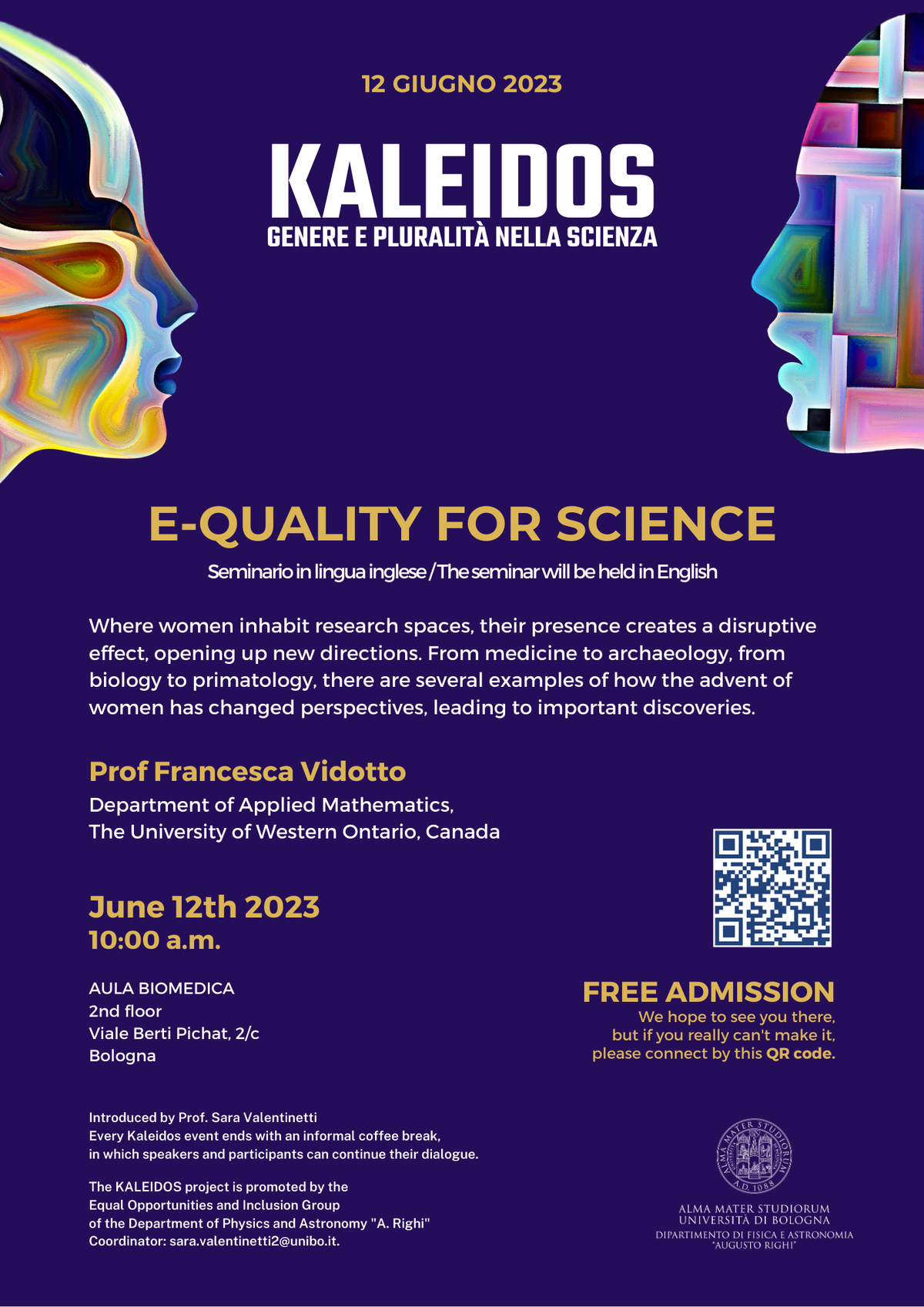ABSTRACT
When women began to inhabit research spaces, their presence created a disruptive effect, opening up new research directions. From medicine to archaeology, from biology to primatology, there are several examples of how the advent of women changed perspectives, leading to important discoveries. The history of women in science has led to a philosophical reflection on science itself, its methods and its development. The resulting image of science is a continuous questioning of what may seem acquired: a process in which different types of knowledge meet and produce new questions. It is a pluralistic science that recognizes the presence of values in the human pursuit of knowledge and allows us to openly discuss how these values guide both the social dynamics of doing science and, above all, the inspiration towards different research directions. How much do our values and culture affect the research results? Can these reasonings also bias the so-called hard sciences, such as mathematics and physics? With the history of women and the feminist reflection on science in mind, it is possible to try and address women's issues as much as economic inequalities, racism, homophobia and other forms of discrimination that influence the construction of knowledge. Such discussion is pressing as much for the sake of justice as it is for better future science.
SPEAKER
Francesca Vidotto is a theoretical physicist. Much of her work focuses on the application of Loop Quantum Gravity to cosmology and black holes. She tackles the problem of understanding the quantum properties of space and time in an interdisciplinary way, bringing together the mathematical, experimental and philosophical perspectives.
She studied at the universities of Padova, Pavia, and Aix-Marseille, and she held postdoctoral positions in France, The Netherlands and Spain. Since 2019 she is a member of the Physics and Astronomy Department and of the Philosophy Department at Western, where she holds a Canada research Chair in the Foundations of Physics. Francesca Vidotto has been active in promoting equity, diversity, and inclusion, and is interested in feminist philosophy of science. She is also always keen to seek opportunities to bring together art and science.


